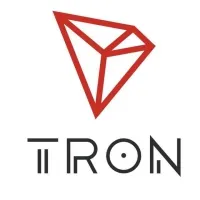After a conversation, I decided to post a blog entry about some of my favorite projects and why I think they're worthwhile, long term, investments/hodl's. I'll try and give you the best information I can, without being long-winded, or pedantic. Some of the reasons I love these projects are complicated, or even purely a gut feeling, but either way, these are projects that show a lot of promise, or have already proven themselves to be more than talk, and some are top 20 projects that I think have the goods to shape the future of crypto and the internet. So without further ado, here is Part 1 of my list.
TRON

Justin Sun, founder of Tron is a very strange dude. Confident, bold, aggressive, and possibly a bit insane. He has made big claims about the power of Tron, and it's future, and it looks like he might come through on those claims. His promise to 'Decentralize the Web' seems to be something he intends to follow through on.
He partially proved this when he suddenly decided to buy Bittorrent Inc. One of the biggest p2p(decentralized) protocols in existence. He got flak from Vitalik Buterin, and Simon Morris, the former CSO of Bittorrent Inc. Morris claimed that there was no way that sun would be able to manage the bittorrent token.
cointelegraph published this Tron critical statement from Morris in Early January 2019:
Nevertheless, Morris reportedly stated that there’s “no way” the Tron blockchain could handle the transaction volume that such a system would require. According to him, his team needed hundreds of transactions per second just to get started. He added:
“You hear all the bulls**t out there, oh, this does 10,000 transactions a second. It’s all crap. We were going to melt TRON. Literally destroy it.”
Well, it's February now and Tron has officially unleashed it's first airdrop of the BTT token, with the promise drop more tokens monthly until February of 2025. A full 10% of the 990 billion tokens on the Bittorrent network will be airdropped over the next 6 years.
So what makes Tron so special? Justin Sun claims that the network is fast, scalable, and a reliable network. Using a fully fleshed-out DPoS(Delegated Proof of Stake) consensus algorithm that allows users to stake their TRX tokens for network 'bandwidth', 'energy' and to vote for Tron 'Super Representatives'.
These super reps are independent groups or persons who are chosen to represent those trx holders who 'vote' for them by staking coins with them. You are rewarded with more TRX, I am assuming through your Super Representatives' 'pool' of staked Tron. Either that or it comes from the total amount of staked TRX tokens throughout the network.
The top 27 SR's become the blockchain validators for the Tron Network. TRX holders can vote every 6 hours for their choice of SR. The network produces 1 block every three seconds.
The backbone of the network are the nodes. There are three types of distinct nodes on the Tron Network.
1.Witness nodes
Witness nodes are set up by SRs and are mainly responsible for block production and proposal creation/voting.
2.Full nodes
Full nodes provide APIs and broadcast transactions and blocks.
3.Solidity nodes
Solidity nodes sync blocks from other Full Nodes and also provide indexable APIs.
(Definitions of nodes TVM and DEX come from the Tron Whitepaper Here )
Tron also features TVM (Tron Virtual Machine)
TRON Virtual Machine (TVM) is a lightweight, Turing complete virtual machine developed for the TRON's ecosystem. Its goal is to provide a custom-built blockchain system that is efficient, convenient, stable, secure and scalable. TVM initially forked from EVM and can connect seamlessly with the existing solidity smart contract 11 development ecosystem.
Based on that, TVM additionally supports DPoS consensus. TVM employs the concept of Energy. Different from the Gas mechanism on EVM, operations of transactions and smart contracts on TVM are free, with no TRX consumed. Technically, executable computation capacity on TVM is not restricted by total holding amount of tokens.
Tron Decentralized Exchange
The TRON network natively supports decentralized exchange functions. A decentralized exchange consists of multiple trading pairs. A trading pair (notation “Exchange”) is an Exchange Market between TRC-10 tokens, or between a TRC-10 token and TRX. Any account can create a trading pair between any tokens, even if the same pair already exists on the TRON network.
Tron currently uses TRC-10 and TRC-20 tokens, but is a full port of Ethereum's Solidity, so many types of tokens can be ported to Tron with relative ease.
(Definitions of nodes TVM and DEX come from the Tron Whitepaper Here )
Overall, Tron is robust, and very manageable network that features avery unique, well implemented DPoS protocol, VM tools, a DEX, and the full power of the Bittorrent network for the creation and sharing of a multitude of media formats.
I consider Tron to be a rock-solid investment with immense amounts of potential for growth and expansion, that positions it solidly at the top of the pack of blockchain projects that will weather volatile markets, regulations, and the time needed for mass adoption of blockchain technologies to catapult it to the highest peak of its potential.
HORIZEN

Horizen (formerly Zencash) is another project I really like. My reasons for supporting Horizen are slightly different than for Tron. Horizen is a privacy focused coin that has an amazing suite of tools and a wallet platform that is shaping up to be a really classy, full-featured platform for all things Horizen.
But beyond that it's very easy for me to picture Horizen, and their memorable logo on the doors of businesses, on the sides of ATM's, and at registers everywhere. It looks like that is where it was meant to be, and one of the hallmarks of a good business strategy is to position yourself as a name that is memorable in wording as well as in logo. Think Apple, with their iconic apple logo, or Dell with their tilted E.
Horizen takes privacy very seriously. To this end they are building an entire ecosystem of Zen products to meet that goal. They want to create the largest node network (Zennodes), domain fronting to allow you to connect to a forbidden host, while appearing to connect another to circumvent censorship (ZenHide), a secure chat platform (Zenchat), Anonymous, immutable publishing platform (Zenpub), (Zengrid) appears to be a platform for renting computational power, the ZenDAO-pretty self explanatory, and a zero-delay payment protocol (instaZen).
I want to focus on a couple of things that really stand out for me. One of these is Zenchat. Secure messaging is nothing new, but in a privacy-based ecosystem, the groups that are taking what's becoming a pretty standard formula--blockchain, dapps, dex, and adding to that a forum for private transactions to occur (like peer to peer exchange and secure messaging) are going to be big winners in the long term. Other projects are using secure messaging as well, but so far, I think Horizen is the most noteworthy of these contenders.
The other thing that tops my list of cool features is ZenHide, a rather unique way of circumventing site censorship by making the offending provider think you are connecting to an allowed domain, and instead logging on to a banned domain. This will be a great tool for people who live in more restrictive countries like Iran, China, Vietnam, and North Korea.
Zenpub is another fabulous idea. Many people who are familiar with the many ethereum blockchain based projects might have heard of Mix. Mix is a blockchain that seeks to be an immutable publishing platform. Immutable publishing is going to be a large part of the future of the internet as the regular social media landscape becomes more restrictive and corrupt.
Facebook, Twitter, youtube, and other big players in the social media sphere are actively restricting content, banning users, and using deceptive practices to limit how content is displayed and propagated.
Zenpub will be a good alternative to these media dictatorships, along with places like Mix, BitTorrent, gab.ai, steem, and my current favorites, Minds.com and Publish0x.com.
I am curious to see how they will implement their computational power renting system, Zengrid. I am assuming there will be a heavy privacy-based component to this platform.
Zen has also recently released their Sphere wallet, which features integrated full node and light implementations, and integrated news and twitter feeds so you can keep up to date with everything that's going on in the Zen-Sphere.
PIRL

Pirl is an community driven, ethereum blockchain based coin that pioneered a global, multi-tiered , Ethash based masternode system. Pirl is also mineable. Pirl has been growing steadily for some time, and seems poised to expand more with the release of their PirlGuard product.
Pirl Masternodes come in three flavors
Storage Masternode
The Storage Masternode network is rewarded with 0.5 PIRL per block as well as bonus reward according to storage space, and bandwidth used. Storage Masternodes provide digital downloads for the marketplace, and is used as a backup file server. Pirl Storage Masternodes are currently in development.
Content Masternode
The Content Masternode network is rewarded with 0.5 PIRL per block as well as bonus reward according to bandwidth used. Content Masternodes provide file storage for the publicly accessible media and data needed for dApps and the marketplace. Pirl Content Masternode is already in beta.
Premium Masternode
Run the main node, content node, and storage node binaries. The premium masternode network is rewarded with 2 PIRL per block and bonus rewards for bandwidth and storage used. Pirl Premium Masternode is already active.
Definitions of masternodes from https://pirl.io/en/masternodes
Pirl is not just a masternode system, Pirl is also working on an integrated all-in-one platform, called Poseidon, that will include decentralized file storage, communications (private messaging and...?), entertainment (Dapps?), and escrow protected trading.
What sets Pirl apart from the rest? PirlGuard. It is an easily integratable security solution for blockchains to prevent 51% attacks. There is an excellent article on Medium that highlights all of Pirlguards features and explains exactly how it works.
Pirlguard is now being implemented in many blockchain projects, including EGEM, another coin that I will be talking about with some cool and unique features. Pirl seems to have a robust, dedicated team with a clear vision, and ready-to-go products that are already finding a use-case in blockchain security.
Join me again for Part 2 when we will explore Dash Callisto and Ethergem.
Follow me on Twitter: https://twitter.com/TheRepublikid
Discord: @Cryptokeeper#4413
Minds: https://www.minds.com/republikid
Publish0x: https://www.publish0x.com/cryptokeeper
*Donations
EGEM: 0x40E791e1913bd6F308CDAfd769894f54eD14E983 (New, uncompromised address)
ETC: 0x5D975858Df91fc5Bbc538CF3c0801f08c60b8960
VERGE: DSfrhCH9r6LfvzQEzj4nAkjhQ6TVdx6LwP
TRON: TBmqG6Fn7EJbTpJuWst48FfvdoGUfs7WA8
ETH: 0xbACD3e61De447876049AdfCCa52Cc20Fa640b1f7
ERC-20: 0x47eECEeCb8893A91Bb856979994eeA57ceF528EC
BITCOIN: 18PhP1L2Jq94Qa69qxdyNjVtoeWKefq7F4
BCH: qqak4lnjrjn7j40q8rqux5fvduyaajayhyfqhpgsre
HORIZEN: znZUNNcMu23DwVC841978RTgTwHWXRUBk6W
DASH: Xe5TXVa9DnbqJ66VvbSwMB6zdqZQa47FaL